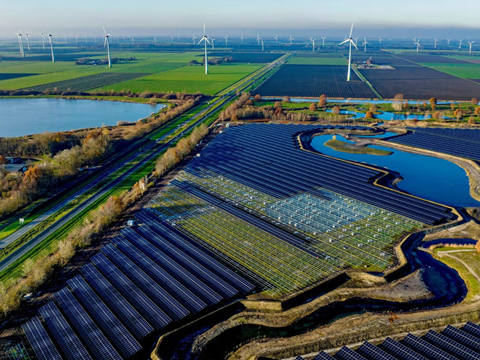
Unilever’s latest Climate Policy Engagement Review (CPER) found that almost 50% of its trade associations are ‘passively aligned’ on climate issues like decarbonization, leading the company to collaborate with its partners and pursue stronger measures.
According to Unilever, industry bodies ‘often serve as the voice of business’ when governments and regulatory bodies draft climate and sustainability laws.
In a bid to make progress on the near-term climate targets and net zero ambition set out in its Climate Transition Action Plan, the company joined forces with Volans to conduct an independent review of a cross-section of twenty-six industry bodies it works with across the world.
This review compared their climate policies with Unilever’s to judge whether they will ‘help or hinder’ its climate transition. To do so, Volans broke down each association’s engagement by policy and judged its alignment with Unilever’s approach.
InfluenceMap’s LobbyMap platform, which tracks corporate and industry association climate policy engagement, was a major contributor.
“Transparency creates opportunities for coordination among members, encouraging associations to engage more actively and align with the majority of their members on climate,” says Ed Collins, director at InfluenceMap.
The review found that fewer trade associations misalign with Unilever’s policies, with fully compatible industry bodies rising from 13 out of 27 in 2023 to 18 out of 26 in 2024. However, around half are only ‘passively aligned’ on climate policy; this means their public position on climate policy aligns with Unilever’s, as well as science-based benchmarks established by the Paris Agreement, yet their direct engagement on the issue is ‘limited’.
Now Unilever’s relationship managers are initiating one-to-one conversations with such associations to encourage constructive action. One potential area of improvement is a more definitive stance on, and rapid phase-out of, fossil fuel energy to accompany public support for scaling up renewable alternatives.
Meanwhile, it is encouraging trade associations to help high-emissions sectors like energy, chemicals, and agriculture cut down on their greenhouse gas emissions – stating that ‘most of the industry bodies we work with could be doing more’.
Unilever also plans to support specific policies that will help industry bodies bolster its climate strategy. After its latest annual report named climate change as a ‘material risk’ to its business, it is urging its partners to revisit climate policy positions, establish climate subcommittees, and improve transparency on lobbying activity.
“We’re urging the industry bodies we work with to actively demonstrate their support for Unilever’s climate policies, including a phase-out of fossil fuels, a swifter transition to renewables and greater implementation of regenerative agriculture practices,” says Rebecca Marmot, chief Sustainability & Corporate Affairs officer at Unilever.
“Unilever is already making progress towards our climate targets, but enabling government policies will help us go further, faster. We’ve increased our direct advocacy on climate issues to reflect that. We need trade associations to do the same, bringing their considerable influence to the table and growing climate engagement among their members.
“Trade associations can show real climate leadership, by using their influence to advocate for policies that support emissions reductions.”
In another industry-wide effort to cut down on greenhouse gases, Together for Sustainability has updated its ‘drop-in’ Product Carbon Footprint Guideline, which is designed to help companies and suppliers track and reduce their Scope 3 emissions in line with the Paris Agreement. In turn, it expects to help users comply with global regulation, meet internal sustainability targets, and improve the resilience of their supply chains.
Meanwhile, Unilever was the centre of controversy this time last year after it revised its plastic reduction target; instead of halving virgin plastic consumption by 2025, it now plans to reduce one-third of its virgin plastics by 2026. Critics feared that this would generate 100,000 extra tons of fresh plastic every year – yet others defended the change as an honest and pragmatic decision.
It has since acquired personal care brand Wild in hopes of making refillable personal care products more accessible to consumers, but questions have been raised as to whether a purpose-driven brand can maintain its focus on sustainability in the face of financial performance targets.
If you liked this story, you might also enjoy:
Reuse vs. single use – which is better for the environment?
Sustainable Innovation Report 2025: Current trends and future priorities
What can the world learn from South Korea’s world-leading performance in plastics circularity?


















No comments yet